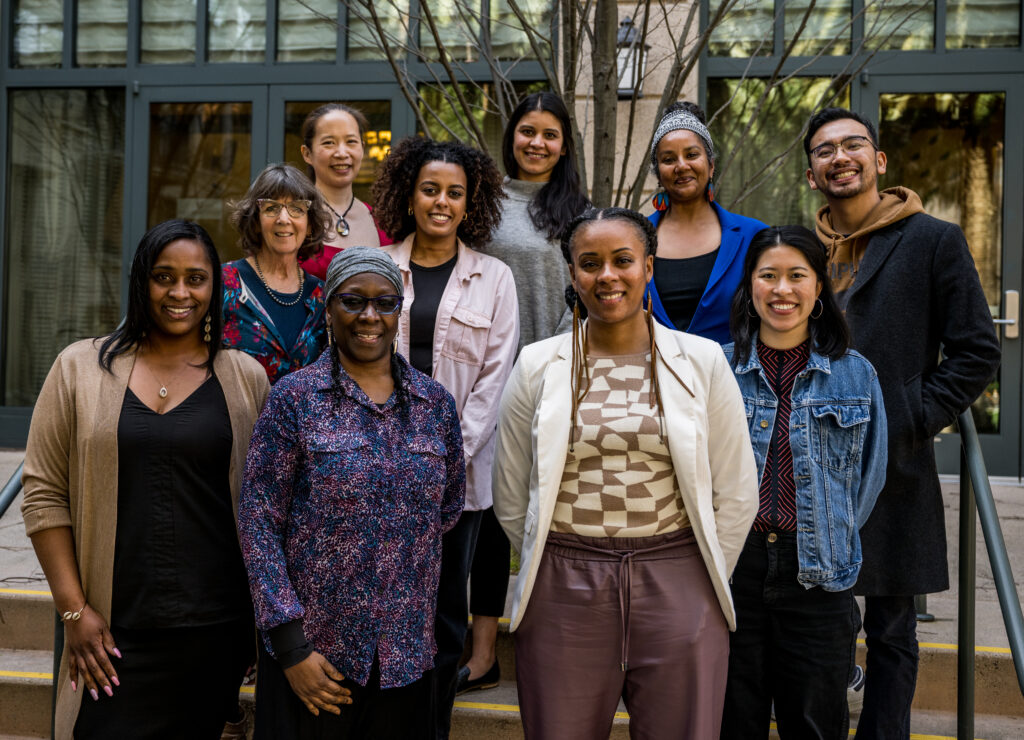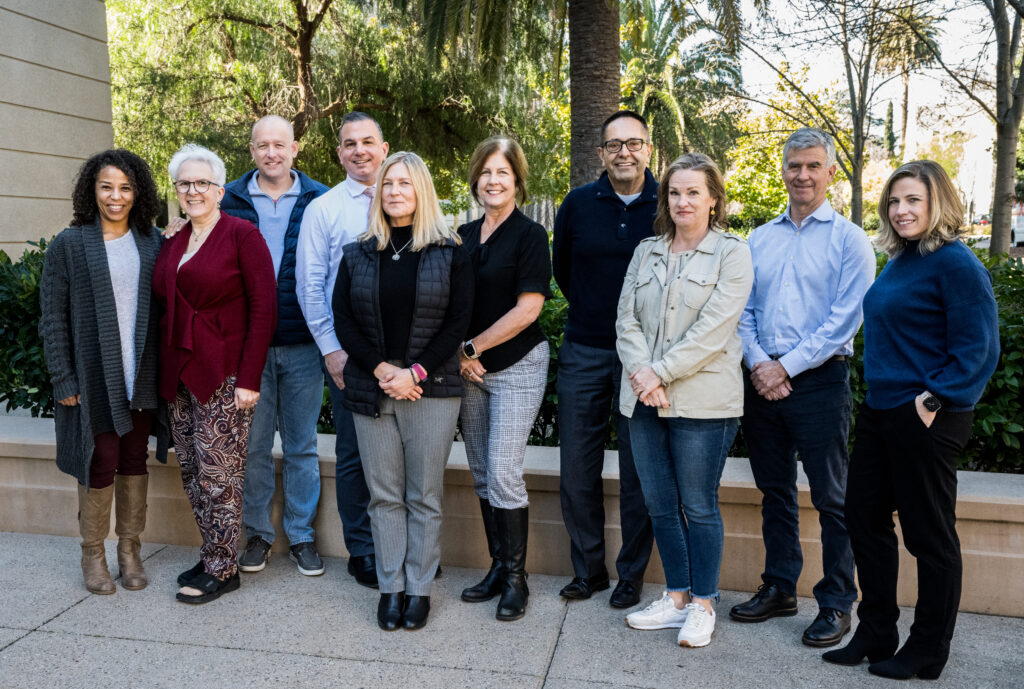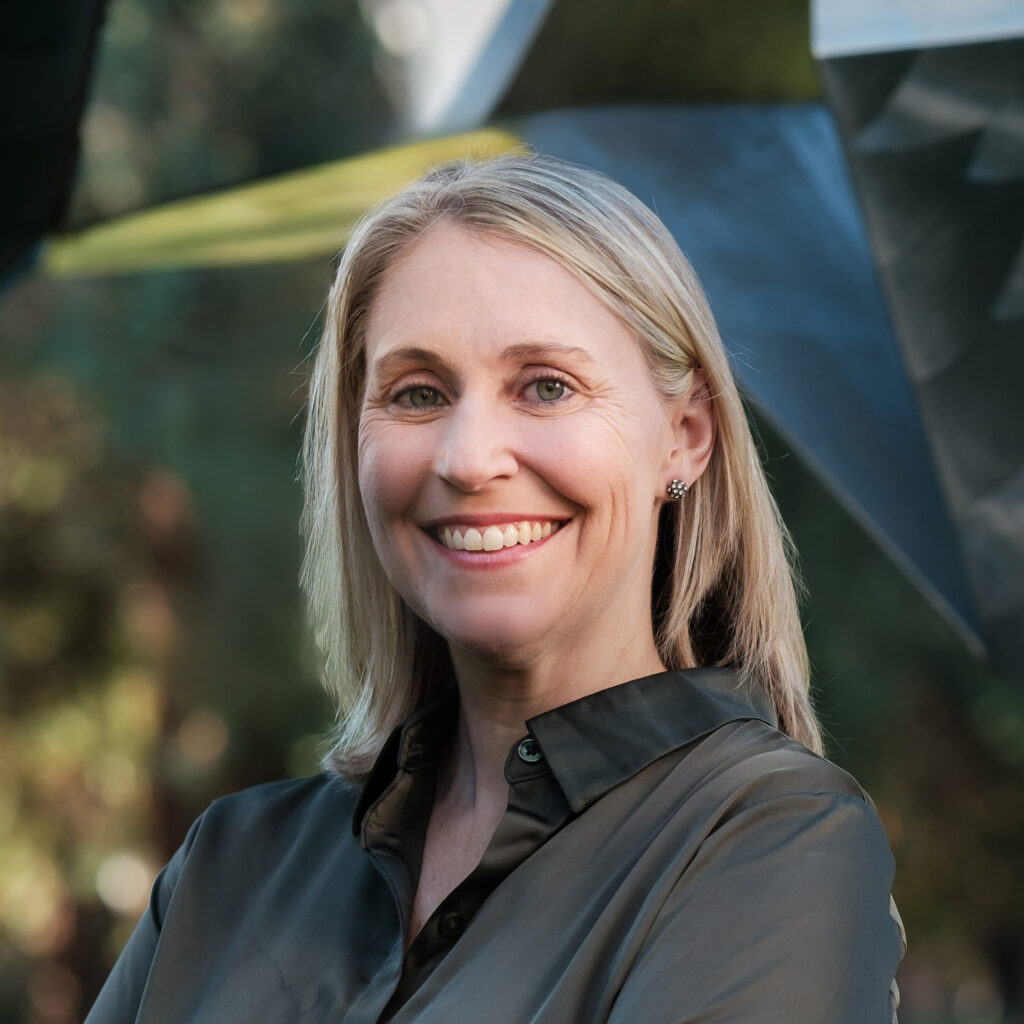Stanford Graduate School of Education (GSE), in collaboration with the Stanford Accelerator for Learning, has awarded grants to 10 GSE faculty to develop research practice partnerships with Bay Area school districts during the 2023-2024 school year.
Faculty will develop projects in collaboration with partner school districts around topics including literacy tutoring for multilingual learners, the design and implementation of accessible ethnic studies, and the impact of reclassifying multilingual learners as English proficient.
The topics align with those tackled by the Stanford Accelerator for Learning, a university-wide initiative housed at the GSE that focuses on creating solutions for the most pressing challenges facing learners.
The GSE has granted funds for research practice partnerships with San Francisco Unified School District (SFUSD) since 2011. In 2017, an additional partnership was established with nine school districts that make up the Stanford-Sequoia K-12 Research Collaborative: Belmont-Redwood Shores, Las Lomitas, Menlo Park City, Portola Valley, Ravenswood, Redwood City, San Carlos, Sequoia Union, and Woodside.
The Stanford-SFUSD Partnership and Stanford-Sequoia K-12 Research Collaborative have developed a leading model of research practice partnership, one that enables districts to collaborate on research that can inform their decision-making while facilitating university research that is both timely and useful for practitioners.

Stanford-SFUSD Partnership Awardees
The Power and Possibilities of Accessible Ethnic Studies
Principal Investigator: Subini Annamma
Participating Departments: African American Achievement and Leadership Initiative; Curriculum & Instruction (Ethnic Studies Team); Special Education - Comprehensive Coordinated Early Intervening Services (CCEIS) Team; LEAD (Mission High School)
SFUSD, like many districts nationwide, has a disproportionate representation of youth of color in suspensions and special education. This research project centers the voices of those most impacted – youth of color who have been suspended and/or labeled disabled, and educators serving them – and situates them as knowledge generators. The project seeks to re-design ethnic studies to be accessible to a wider range of students, implement accessible ethnic studies, and evaluate its impact.
Finding the Relationships Among Feedback, Instructional Improvement, and Student Success
Principal Investigator: Janet Carlson
Participating Departments: LEAD School Supervisors; Research Planning Assessment Department
This project focuses on one of SFUSD’s “guardrails,” non-negotiables the superintendent must honor while pursuing district goals. Specifically, it focuses on guardrail 3 (curriculum and instruction), which states: “The superintendent will not allow curriculum and instruction that is not rooted in excellence, challenging and engaging, student-centered and culturally responsive, and differentiated to meet the academic needs of all students.” The goals for the project are to identify specific research questions, data, sources, and analysis techniques in order to establish the statistical relationships between how teachers teach and how successful students are. Doing this work will support the Research Planning Assessment team in providing evidence for monitoring progress toward this guardrail.
Identifying and Addressing Human Resource (HR) Needs in SFUSD
Principal Investigator: Susanna Loeb
Participating Departments: Human Resources Department; Research Planning and Assessment Department
This project engages district leaders and university-based researchers in a collaboration to explore solutions to two interrelated problems in U.S. public education: (1) how to develop district capacity to collect, assess and use data for continuous improvement in education management and practice; and (2) how to bring such evidence-based practices to attract, develop, and retain well-qualified teachers and leaders in urban schools. This project will deliver an annual retention report calculating turnover rates of district educators, and an annual survey gauging educator perspectives and attitudes around support and satisfaction.
Shoestrings: Disrupting Racial/Ethnic Disproportionality in Discipline and Special Education
Principal Investigator: Jelena Obradović
Participating Departments: Early Education; Special Education - Comprehensive Coordinated Early Intervening Services (CCEIS) Team; African American Achievement and Leadership Initiative.
The goal of this mixed-methods study is to understand the impact of the SFUSD Shoestrings program on students and families. To investigate the program’s effect on students’ academic and behavioral outcomes, the team will compare demographically matched program participants and non-participants using school administrative data. To identify core practices and strategies of the Shoestrings model, they will observe the program and interview program staff and general education teachers. To understand educators’ and families’ experiences, they will interview educators and interview and survey parents/guardians of participating students and matched peers. In collaboration with Shoestrings staff, they will create reports summarizing implications for practice and policy for stakeholders working to disrupt the preschool-to-prison pipeline within and beyond SFUSD.

Stanford-Sequoia K-12 Research Collaborative Awardees
Early vs. Late Exit Reclassification of English Learners (EL) and Academic Trajectories in Middle and High School
Principal Investigator: Amado Padilla
Participating Districts: Belmont-Redwood Shores, Menlo Park City, Ravenswood City, Redwood City, San Carlos, Sequoia Union
English learners are reclassified as English proficient at widely different times in their school trajectory. The goal of this project is to bridge the knowledge gap of multilingual learner trajectories by focusing on the population of early exit, which has received relatively little attention. Accordingly, this study will examine whether EL students who are reclassified as English proficient score higher on achievement tests and are assigned to higher-level pathways in their academic subjects. The study also explores the impact of single- and dual-language immersion programs, and home and school factors that contribute to early reclassification of English proficient status.
Disentangling the Complexities of Developing English and Learning English When English Is a Second Language
Principal Investigator: Guillermo Solano-Flores
Participating District: Sequoia Union
This research will help identify instructional strategies that effectively support the district’s population of English learners in improving English literacy skills. The project will address the complexities that stem from the fact that developing a second language (e.g., through social interaction) and learning a second language as a subject (e.g., ELA) are different but intersecting processes. Activities will address the confluence of three different but interrelated aspects of English that are relevant to properly supporting ELs: developing English as a second language, learning English language arts, and learning content in English to make progress toward graduation and college preparation.
Learning to Lead for Equity: Leader Identity and Development
Principal Investigator: Janet Carlson
Participating Districts: Las Lomitas, Menlo Park, Ravenswood, Redwood City, Woodside
This project will develop case studies of leadership development over time, addressing the implications for strengthening district practices that focus on equity, especially for multilingual learners. Understanding one’s leadership stance and view of equity is essential for developing policies and practices that inform the experiences of multilingual learners. In addition, leaders must learn how to enact these policies in ways that enable all educators in the school system to critically reflect on their work and make shifts that will lead to more positive outcomes for multilingual learners. Accordingly, this study will examine how leaders at different levels in the system develop their leadership stance, the skills and knowledge needed for effective leadership, and how leaders work together to identify and resolve challenges that impact student learning.
Making RFEP Criteria More Meaningful
Principal Investigators: Tom Dee, Amy Gerstein
Participating Districts: Belmont-Redwood Shores, Las Lomitas, Menlo Park City, Portola Valley, Ravenswood, Redwood City, San Carlos, Sequoia Union, Woodside
The recent body of scholarly work about multilingual learners suggests that timely reclassification of these students as English proficient (RFEP) is important for their long-term academic trajectories. Research conducted as part of the Stanford-Sequoia K-12 Research Collaborative has yielded similar findings, including observed differences in rates of high school graduation based on English learner classification. In 2021-22, Gardner Center researchers studied the reclassification processes in each of the nine Sequoia Collaborative districts, describing how each district interprets and implements the EL reclassification criteria defined by the California Department of Education. The study findings revealed a set of systemic practices and norms that can interrupt the timely reclassification of students, as well as opportunities for potential process improvements. By spring 2023, the districts agreed to align changes for reclassification of 8th grade students, and many also began implementing changes to reclassification criteria and processes for students in other grade levels. This study provides an opportunity to study the implementation of recent changes to reclassification practices.
Rapid Online Assessment of Reading (ROAR)
Principal Investigator: Jason Yeatman
Participating Districts: Belmont-Redwood Shores, San Carlos, Woodside
The English-language Rapid Online Assessment of Reading (ROAR) is currently being used by district partners to screen students across grades for foundational reading skills, and it has been validated for this purpose. Through this study, the team is learning about how students develop their foundational reading skills over time, including how different basic skills build on one another. In the coming year they will be poised to expand these research findings to Spanish foundational reading skills in Spanish-speaking multilingual learners. This will allow them to understand how the development of foundational reading skills is similar or different across the home language of Spanish as well as English, including for newcomers and long-term English learners.
Ravenswood Reads Tutoring
Principal Investigator: Rebecca Silverman, Renee Scott, Rebecca Deutscher
Participating District: Ravenswood
The Ravenswood City Schools are focused on supporting literacy for all of their learners. As districts and schools look towards solutions for supporting students, they will need tools to provide optimal support. Using tutors as a way to provide differentiation may be one way to help students. This project investigates a tutoring program run through a partnership between the school district, the Boys and Girls Club of the Peninsula, the Haas Center for Public Service, and the Stanford Graduate School of Education. In this project, Stanford undergraduates were trained as fellows to guide high school volunteers to tutor students in grades 1-2 during a summer school program. Data collected include assessments, observations, surveys, and interviews with key stakeholders (i.e., fellows, tutors, students, caregivers). Analyses will examine the impact of the program and the strengths and challenges of implementing such a program. Lessons learned will inform the current partnership and can apply to other contexts as well.
Learn how the Stanford Accelerator for Learning funds research with lasting impact on learners.


